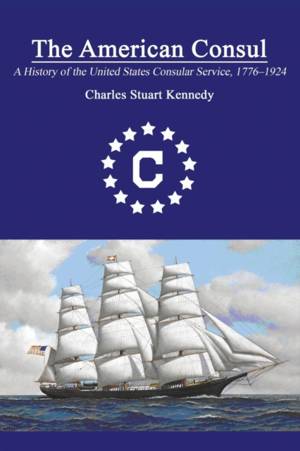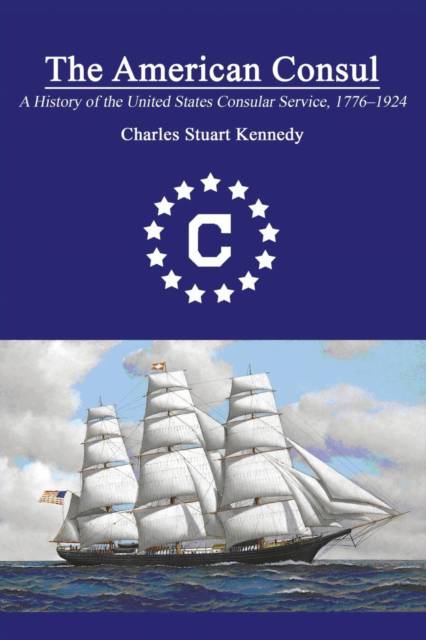
- Retrait gratuit dans votre magasin Club
- 7.000.000 titres dans notre catalogue
- Payer en toute sécurité
- Toujours un magasin près de chez vous
- Retrait gratuit dans votre magasin Club
- 7.000.0000 titres dans notre catalogue
- Payer en toute sécurité
- Toujours un magasin près de chez vous
The American Consul
A History of the United States Consular Service 1776-1924. Revised Second Edition
Charles Stuart Kennedy
Livre broché | Anglais
33,95 €
+ 67 points
Format
Description
This book traces the significant history of the U.S. Consular Service, America's principal representation abroad through most its history. This new edition adds the period 1914 to 1924, after which the Consular Service was integrated with the Diplomatic Service to form the present-day Foreign Service of the United States. This volume thus adds the work of the Consular Service through the end of World War I, the Greek disaster in Turkey, and Germany in the early years of the Weimar Republic. Consuls have played an important role in relations between countries from ancient times to the present. Consuls look after the citizens of their respective countries temporarily living elsewhere, and they act as quasi-diplomatic representatives wherever they are located. In this book the author briefly traces the history of consuls from their creation in the Egypt of the Pharaohs to their spread across the sailing routes of the Mediterranean to the rest of the world. The book focuses mainly on the development of the Consular Service of the United States. As a British colony Americans relied on the far-flung British consular system to take care of their sailors and merchants, but after the Revolution they had to scramble to create an American service. While the American diplomatic establishment was confined by protocol to the major capitals of the world, U.S. consular posts proliferated to most of the major ports where the expanding American merchant marine called. Mostly untrained political appointees, each consul was a lonely individual relying on his native wits to provide adequate help to distressed Americans, mainly seamen. As consular appointments were often used as a reward for authors and other talented people, the American Consular Service could boast of such noteworthy members as Nathanial Hawthorne, James Fennimore Cooper, William Dean Howells, Bret Harte, and the cartoonist Thomas Nast. Winston Churchill's grandfather was an American consul, as was Fiorello LaGuardia, later mayor of New York. American consuls played significant roles in the War of 1812, the Mexican War, the Civil War, the Spanish-American War, and World War I and its aftermath. "This book is both a historical record and an introduction to the world of American consuls. The description of the early years of the Republic with its raffish, sometimes corrupt consular personalities, its first glimmerings of the political spoils system grow in significance when one considers the modern scandal of political appointee." - Diego Asencio, Assistant Secretary of State for Consular Affairs (1980-1983) "The scholar, the practitioner or even the young American bent on public service will find The American Consul to be a riveting read... Kennedy has documented eloquently the tireless, often selfless and patriotic efforts of the American consuls of yesteryear. He has inspired this reader by making the consul's historic role come alive." - Maura Ann Harty, Assistant Secretary of State for Consular Affairs (2002-2008)
Spécifications
Parties prenantes
- Auteur(s) :
- Editeur:
Contenu
- Nombre de pages :
- 320
- Langue:
- Anglais
Caractéristiques
- EAN:
- 9780990693970
- Date de parution :
- 05-05-15
- Format:
- Livre broché
- Format numérique:
- Trade paperback (VS)
- Dimensions :
- 152 mm x 229 mm
- Poids :
- 471 g

Les avis
Nous publions uniquement les avis qui respectent les conditions requises. Consultez nos conditions pour les avis.






